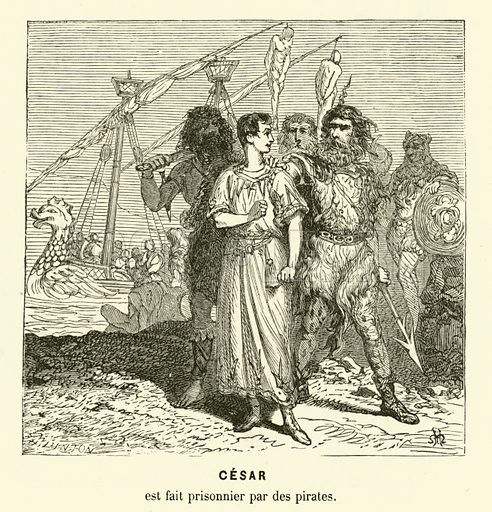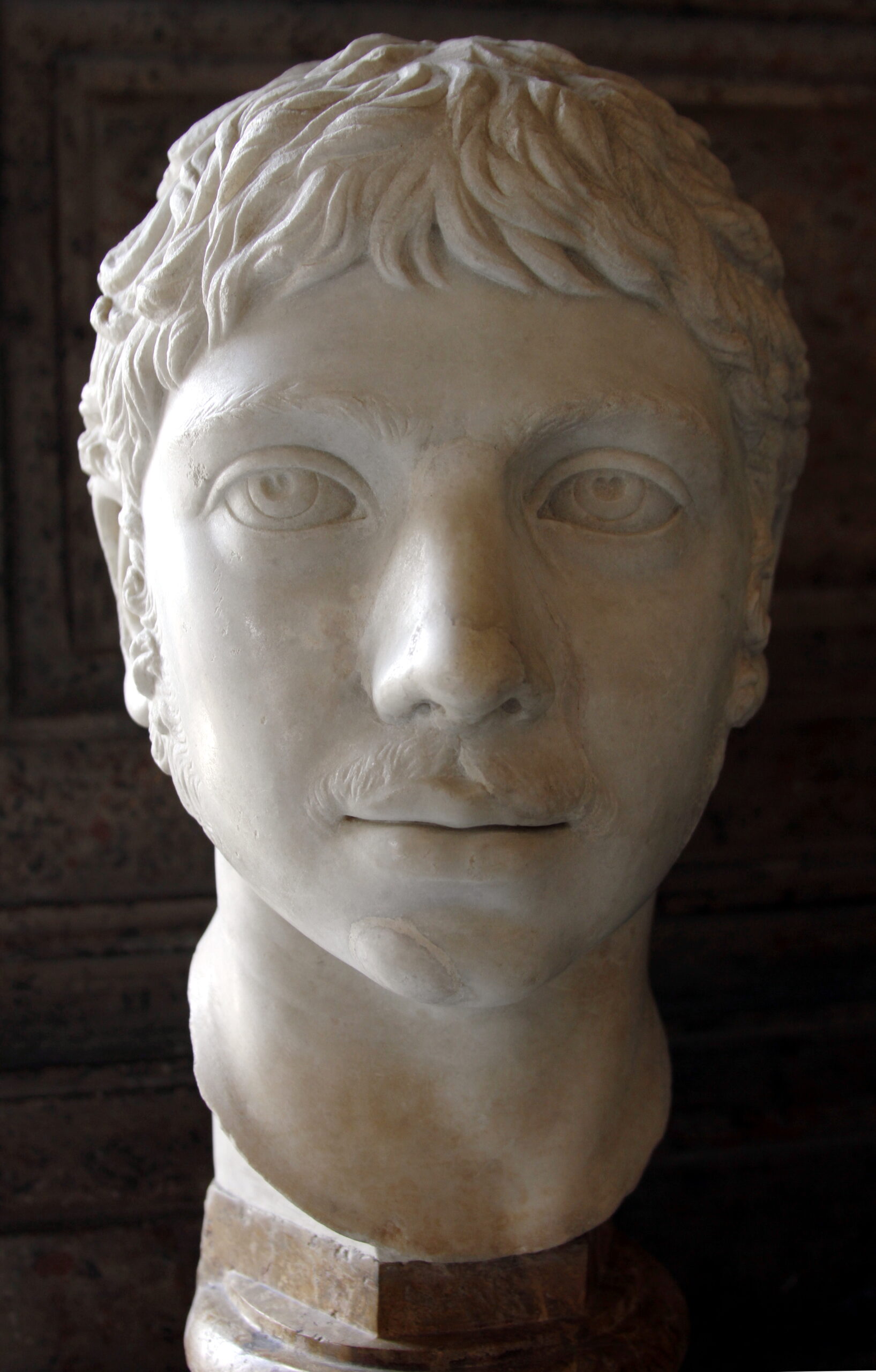In the year 75 BCE, Julius Caesar, a young Roman nobleman, embarked on a voyage to Rhodes with the intention of pursuing his studies in oratory. However, on his way back to Italy, he was captured by a group of notorious pirates in the Aegean Sea. This event would turn out to be a defining moment in Caesar’s illustrious career.
Initially, Caesar, like any typical captive, was utterly helpless and frightened. However, his sharp intellect and unparalleled sense of pragmatism helped him to overcome his fears and play his cards smartly. Caesar soon realized that he was not just a pawn in the pirates’ game but an opportunity to assert his authority over them. So, he decided to turn the tables on his captors and negotiate a hefty ransom for his release.
Caesar initially demanded 100 talents from his captors, but he soon changed his demands after consulting his fellow hostages. He agreed to settle for 50 talents, and the pirates obliged. This was a considerable amount, but Caesar did not stop there. He further demanded special treatment and privileges for himself, which he got. He was accorded a private cell, served meals fit for a king, and allowed to move around freely.
Moreover, Caesar began to exploit the situation to his advantage. He used his captivity as an opportunity to polish his communication skills by delivering impromptu speeches and reciting poems to the pirates. This charismatic display of personality had a profound impact on the Pirates, and they began to admire Caesar’s confidence and intelligence.
Caesar’s unconventional behavior kept his fellow hostages on edge, but they could not ignore his uncanny ability to lead from the front. Moreover, his positivity and optimistic outlook inspired hope in his captors, and they even began to doubt whether he was truly a prisoner.
After an astounding 38 days of captivity, Caesar was finally released. True to his word, Caesar returned to recapture the pirates and bring them to justice. He assembled a formidable Navy and marched against the island where he had been held captive. The Pirates were defeated and punished in the most severe manner possible, all of them being summarily crucified.
This incident went down as an unforgettable chapter in the annals of Roman history. Caesar’s courage and wit had not only won him his freedom but also cemented his reputation as a formidable leader. This event had also set the groundwork for Caesar’s future career, instilling in him a daredevil spirit that would propel him to greatness.
In conclusion, Julius Caesar’s gift of the gab, coupled with an unerring sense of logic and leadership, earned him many accolades during his lifetime. It was, however, his captivity by the pirates that proved to be the turning point in his career. This incident marked the awakening of his leadership qualities, a trait that he would carry with him throughout his life, inspiring legions to follow his lead. As Caesar once famously said, “Veni, vede, vici” (“I came, I saw, I conquered”), and Caesar’s captivity by the pirates is evidence of his irrefutable rise to glory.
image sources
- Julius Caesar taken prisoner by Cilician pirates while crossing the Aegean Sea, c75 BC: https://commons.wikimedia.org/wiki/File:M443922_Julius-Caesar-taken-prisoner-by-Cilician-pirates-while-crossing-the-Aegean-Sea-c75-BC.jpg#/media/File:M443922_Julius-Caesar-taken-prisoner-by-Cilician-pirates-while-crossing-the-Aegean-Sea-c75-BC.jpg



